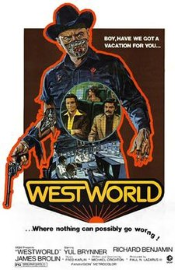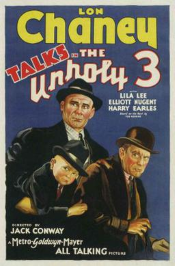The 35 Best Heist Movies

The Playlist recently posted their choices for The 35 Best Heist Movies. There are a lot of great movies on this list. In an effort to narrow it down, I decided to choose from movies where one heist was the focus of the film.
So using just their list here are three of my favorites…
“Rififi” (1955)
Yes, we know. This is the grandaddy of all heist films, the one that tops everyone’s list and is name dropped constantly. But if you haven’t seen the film (and by God, you should remedy that situation quickly) don’t get suckered into thinking this is just some cinematic touchstone that everyone talks about but no one really watches. If anything, Jules Dassin’s “Rififi” remains the template and the standard, with a centerpiece heist sequence that is still yet to be topped. The plot is standard stuff: four guys target a jewelry store, plan the perfect job and things don’t quite go as planned. But Dassin’s masterstroke is the 30-minute, nearly completely silent heist (no dialogue, no soundtrack) that brilliantly throws viewers right into the heart-pounding, tension filled robbery. A masterpiece in every sense of the word, “Rififi” remains the torchbearer for the genre with very good reason.“The Getaway” (1972)
Based on a novel by the poet laureate of hard pulp Jim Thompson, directed by feminist favorite Sam Peckinpah, and starring a Steve McQueen firmly in the midst of a cocaine-soaked marriage breakdown, “The Getaway” rises out of a dense fog of testosterone: it doesn’t get any more boys-night-in than that. Ali McGraw (somewhat miscast, to occasionally charming effect) uses her wiles to free husband “Doc” McCoy (McQueen) from prison. After a botched bank robbery, the bickering pair go on the run with the loot, pursued by cannon-fodder cops and a variety of goons, led by the astonishingly repellent and malevolent Rudy (Al Letteria). Perhaps inevitably, it all culminates in a bloodbath in El Paso, and a tender reconciliation for the then real-life lovers. This is by no means top-tier Peckinpah; both he and McQueen were desperate for a no-nonsense hit after the commercial failure of “Junior Bonner” (1972). Nevertheless, all the staples are there — stunningly edited montages, patented slo-mo bullet ballet — and “The Getaway” is a solid, straight-ahead action flick that’s always fun to wander into the middle of on late night T.V. Possibly not Robert Evans’ favorite film though…“The Asphalt Jungle” (1950)
John Huston’s 1950 noir may be better known now for the films it influenced (at least half the titles on this list, notably “Rififi”), and for an early luminous performance by Marilyn Monroe, but the film, creaky though it is in places and marred by some didactic, moralistic dialogue, is still a compelling piece in its own right. The narrative arc, (a man has a plan, gets a gang together, pulls off a heist, only to have chance and human nature foil the scheme) has become pretty much the heist film template, but details like the corruption of the police force and the careful characterizations of the gang members keep the proceedings fresh. And while censor-friendly debates on the nature of criminality abound, it’s clear where Huston’s sympathy actually lies; it is power, not lawbreaking, that corrupts here, so the only people with any sort of a code are those on the very bottom of the food chain: Sterling Hayden’s petty hood; the girl who loves him; the hunchbacked getaway driver and the safe-cracking family man. Disgust is reserved for those further up the hierarchy, whose degenerate desires eventually thwart them (both the mastermind and the front/fence character – a suave Louis Calhern – are undone by their interest in young nubile girls), while Hayden’s Dix is rewarded for his staunch, if misplaced loyalty, and perverse nobility, with the kind of tragic, theatrical, poetic death; the greatest honor a movie criminal in oppressive ‘50s America could hope for.



























































